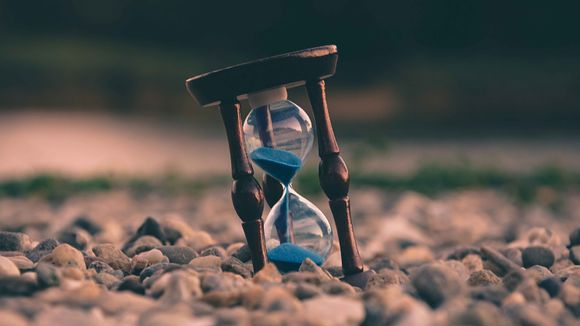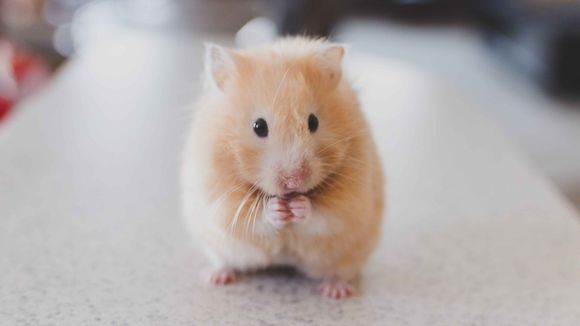Reset Ageing Button
In Sinclair's lab, two mice sit next to each other. One is a picture of youth, the other is almost faint. Yet they are a brother and sister born from the same litter - only one mice is genetically altered to grow older faster. If this can be done, then Sinclair asks his team is it possible to do the contrary? [ [ref. 1] ]
Japanese biomedical researcher Dr Shinya Yamanaka has already reprogrammed adult skin cells to behave like embryonic or pluripotent stem cells capable of developing in any cell in the body. The 2007 discovery won the scientist a Nobel Prize and his "induced pluripotent stem cells" soon became known as "Yamanaka factors." [ [ref. 2] ]
However, adult cells, wholly switched back to stem cells through the Yamanaka factors, lose their identity. They forget they are blood, heart and skin cells, making them ideal for rebirth as a "cell du jour", but not suitable for rejuvenation. If we have to explain it differently, then we don't want Brad Pitt in the movie "The Curious Case Of Benjamin Button" to suddenly become a baby; he is expected to rejuvenate himself and also remember who he is.
Laboratories around the world address this issue. A study published in 2016 by researchers from the Solk Institute for Biological Research in La Hola, California, shows that signs of aging can be removed in genetically obsolete mice exposed for a short time to four main Yamanaka factors without erasing cell identity. [ [ref. 3] In this study, however, there is a disadvantage: in certain situations, altered mice develop cancerous tumors.
Looking for a safer alternative, the lab geneticist from Yuancheng Lu selects three of the four factors and genetically adds them to a harmless virus. The virus is designed to deliver the rejuvenating factors Yamanaka to the damaged ganglion cells of the retina at the back of an adult mouse's eye. After injecting the virus into the eye, pluripotent genes are involved by giving an antibiotic to the mouse.
"Antibiotics are just a tool. It could be any chemical, just a way to check that the three genes are involved," Sinclair says. 'They're usually only included in very young developing embryos and then switched off when we get older.'

What happens next
Surprisingly, damaged neurons in the eyes of mice injected with rejuvenated three cells even grow new axons or projections from the eye into the brain. After this initial study, Sinclair says his laboratory experiment reversed aging in the muscles and brains of mice and is now working on rejuvenating the entire mouse body.
"Somehow the cells know that the body can restart and still know which genes should have been switched on when they were young," says the molecular biologist. "We think we use an ancient regeneration system that some animals also apply – when you cut off the salamander limb, this limb grows again. The tail of the fish will grow again; the mouse finger will grow again."
This discovery shows that there is a "backup" of information about youth stored in the body.
"I call it an information theory of aging," says Dr Sinclair. "This is a loss of information that causes aging cells to forget how to function, to forget what type of cells they are. And now we can turn on a reset button that restores the cell's ability to read the genome correctly again as if it were young."
While the changes lasted for months in mice, the renewed cells did not "freeze" over time, ageing. "This is as constant as aging. It's a reset, then we see the mice age again, so we just repeat the process.'
According to him, he and his team found the main control switch, a way to turn around the clock. And he adds that "then the body will wake up, remember how to behave, remember how to regenerate and be young again, even if it is already old and sick."
The future of achievements in anti-ageing medicine
In the laboratory of molecular biologist David Sinclair at Harvard Medical School, old mice are getting young again. Using proteins that can turn an adult cell into a stem cell, Sinclair and his team restored aging cells in mice to earlier versions of themselves. In his team's first breakthrough, published in late 2020, old mice with poor vision and damaged retinas can suddenly see again, with vision sometimes comparable to that of their offspring. [ [ref. 4] ]
"It's a constant zeroing, as far as we can tell, and we think it could be a universal process that can be applied throughout the body to restore our age," says Sinclair, who has spent the past 20 years studying ways to reverse the damage caused by the course of time.

"If we reverse aging, these diseases should not happen. Today we have the technology so we can get to nearly a century of life without worrying about getting cancer in our 70s, heart disease in the 1980s or Alzheimer's in our 90s.'
While modern medicine deals with the disease, it is not aimed at the underlying cause, "which for most diseases is aging itself," says Dr Sinclair. "We know that when we reverse the age of an organ like the brain of a mouse, the diseases of aging disappear. Memory returns; dementia is no longer there."
According to the American molecular biologist, in the future delaying and reversing aging will be the best way to treat the diseases that threatens most of us. This is the world that is coming. It's literally only a matter of time before this happens in this decade.

